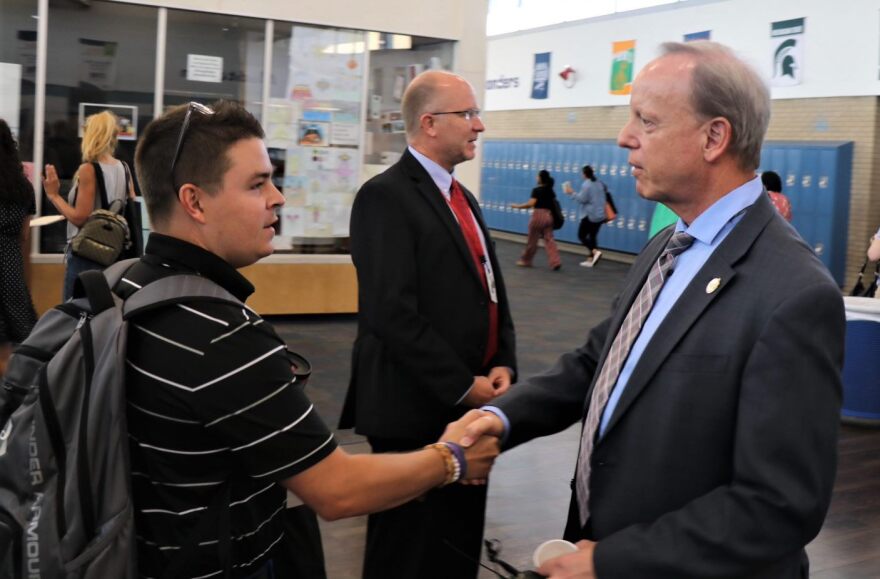Superintendents across the country have been thrown obstacle after obstacle in the past few years – from pandemic shutdowns and online learning to increasingly volatile school board meetings.
It’s a tough job and four school districts across Florida – Pinellas, Broward, Lee, and St. Lucie – are searching for their next superintendent.
Miami-Dade, the fourth-largest school district in the nation, just secured their newest leader last week after a hurried process.
Pinellas is in a similar situation, trying to find a replacement for long-time superintendent Michael Grego who is set to retire this summer.
These searches are challenging. Superintendents have to be well-qualified -- and be willing to weather problems ranging from curriculum and staffing to pandemic issues such as online learning and mask mandates.
Dan Domenech, executive director of the AASA, The School Superintendents Association, said nationally people across the education field - from cafeteria workers to superintendents - are leaving “en masse.”
He said the environment is caustic--and the stress has had an effect on public school's highest officials. Some are retiring before they intended to. Others have quit to take jobs in the private sector. And some were fired by their school boards.
"I've been in this business 54 years, I have never, ever seen anything like this,” Domenech said. “This is definitely the worst period that I've ever seen in education. And so as these individuals that have been tested, excellent educational leaders are leaving, there's nobody to replace them with that level of experience. So what we're seeing is individuals lacking any kind of experience moving into leadership positions, at a point in time, when that kind of experience and expertise is required more than ever."
The situation has been especially stressful in Florida. Last year, eight school districts drew ire from Gov. Ron DeSantis for defying his order prohibiting the state's schools from enforcing mask mandates.
"We've seen courageous leaders in Florida who put the safety and welfare of their students first and, and went against what the governor, governor's mandate and have done it,” he said. “But then in turn, the governor turned around and threatened to not provide the district with the salaries of the superintendent or the Boards of Education. We did see that the secretary of education stepped in and said that the federal government would make up that difference. But it's still an ongoing issue and an ongoing concern. And a lot of superintendents don't want to put themselves in a position of having to go against the executive orders of a governor.”
In addition to the pandemic, he said, superintendents in Florida and across the country have to deal with increasingly politicized school board meetings.
"The school board meeting is an opportunity for community members, be they parents or residents of the community to come and speak at the meeting and address issues. What's not sought, what's not invited, what's not welcomed, is when people come and they're vile, abusive, and threatening. And that is a whole different situation. Because when we have superintendents that require police protection, to go into the parking lot to get in their car, when they require police protection at their home, because their spouse and children are being threatened and abused in the school that goes beyond the pail. That is a whole different environment. And that's part of the caustic environment that's responsible for the number of people leaving the profession."
Domenech said these departures are a loss for the public education system. And filling these open positions may be a challenge.
"You have a lot of vacancies in Florida right now,” he said. “Because you do have, your county systems are among the largest in the country. So those are positions that require expertise, savvy, somebody with a background and experience to step into these jobs and do them well...As search firms look for candidates for these positions, there aren't that many. So that's going to be a problem for Florida as it's going to be four states around the country."




